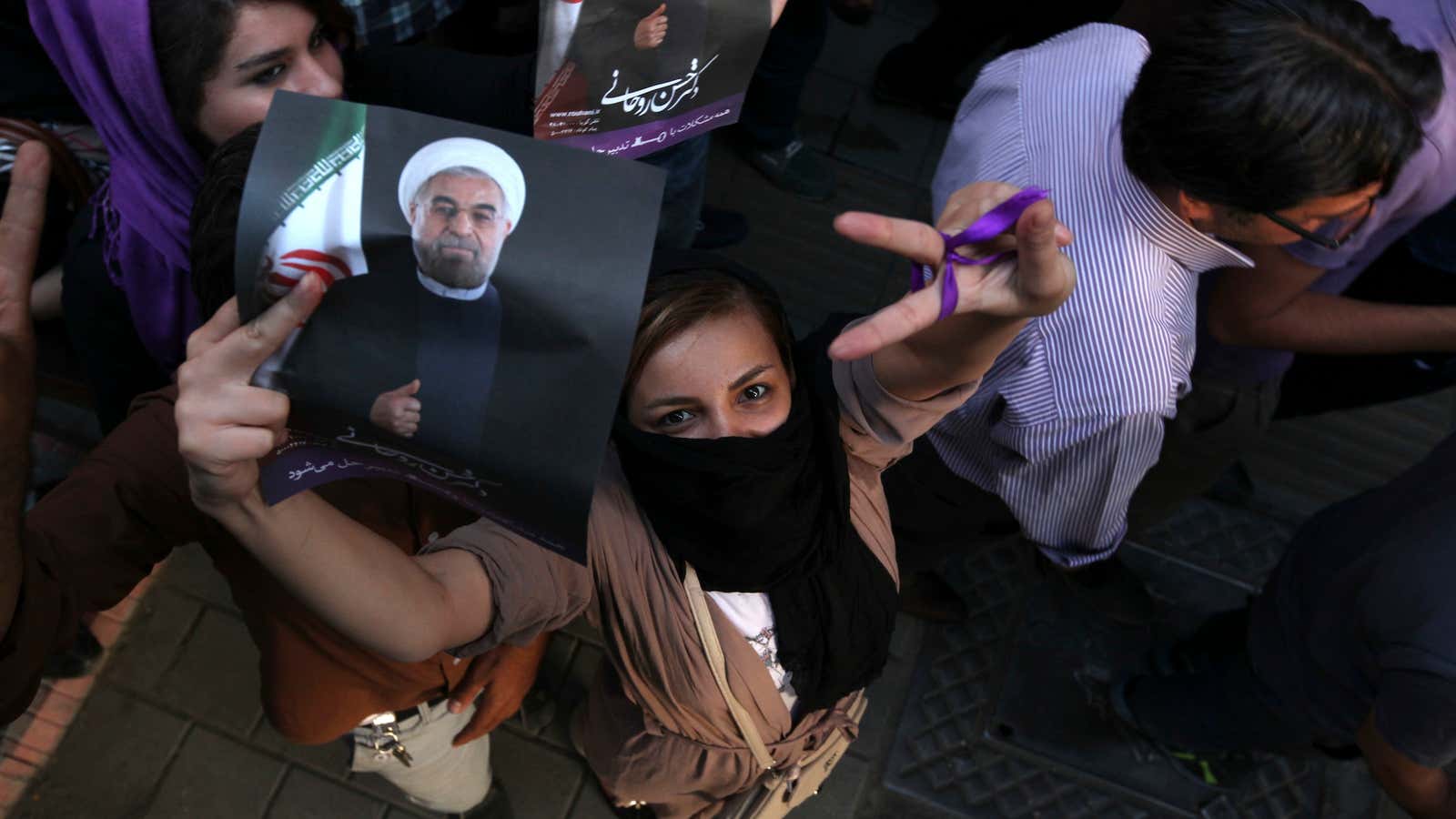In a surprising turn of events, Iran’s only moderate presidential candidate was declared the victor in Friday’s landslide election.
Hassan Rohani, a 64-year-old cleric and former nuclear negotiator backed by Iranian reformists, won over 50% of more than 36.7 million votes cast, according to Iran’s interior ministry. Iran’s election laws require that a candidate secure 50% of votes plus one to win.
The candidates considered to be cozier with Iranian supreme leader Ayatollah Ali Khamenei fared the worst. Rohani’s nearest challenger, Tehran mayor Mohammad-Baqer Qalibaf, had 15% of votes in an earlier tally. Former revolutionary guard commander Mohsen Rezaei was third in that tally. Iran’s chief nuclear negotiator Saeed Jalili and former foreign minister Ali Akbar Velayati ranked fourth and fifth respectively.
Many analysts expected that the regime, fearing a surge of reformist support, would try to suppress voter turnout. As we wrote yesterday, a close look at social media on election day suggested that Rohani was the clear favorite. But many considered Jalili the likely winner given his close relationship with Khamenei. Rohani likely benefitted from divisions among conservative voters, who had more candidates to choose from. But few expected any candidate to pull ahead with more than 50% of votes and avoid a runoff.
Rohani, along with Velayati and Rezaei, have criticized the regime’s hardline approach to negotiating with Western powers about the country’s controversial nuclear program. Rohani’s comments have suggested that, in the face of tightening economic sanctions against Iran, he would be more accommodating on the nuclear issue, even though on matters of national security the supreme leader wields more power. International sanctions have fueled rampant inflation in Iran, and the country’s currency has plummeted in value.
We recently predicted that the Iranian election would herald a nuclear thaw, regardless of the outcome. That prediction was based on our 14 rules of geopolitics, particularly rule numbers 2 and 7: Nations will drive themselves close to a precipice, but only rarely take the plunge. Generally speaking, even seemingly sclerotic leaders wise up in the face of the abyss.
